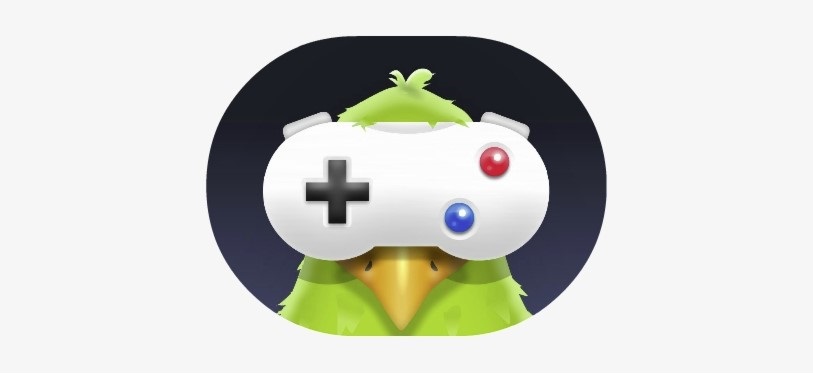- Epic Games sued Apple and Google last week after Fortnite was removed from the App Store and Google Play Store
- Epic Games believes the 30% commission Apple and Google take from microtransactions stifles competition.
- Epic Games’ crusade ignores the fact that console makers like Microsoft and Sony also take a 30% cut on all transactions.
Epic Games last week decided to throw caution to the wind when it openly introduced its own payment system into Fortnite. In doing so, Epic Games sought to avoid both Apple and Google’s 30% commission on micro-transactions, a fee structure that has existed on both platforms for well over a decade at this point.
The authors of the game took your feedback at heart and overhauled the entire game. Best sea battle layout.
Pigeon Wings has nothing to do with Tiny Wings, another bird-based iOS favorite, but it could likewise turn into an on-the-go obsession.In this delightful little indie game, the titular Pigeon. Just because an app is available in the App Store doesn’t mean it will stick around. Apple maintains a tight ship and has strict policies on what apps are allowed to do, but sometimes a few slip.
Predictably, both Apple and Google reacted strongly and swiftly removed Fortnite from their respective app stores. The move, as we soon found out, played right into Epic’s hands. Just minutes after Fortnite was banished from the App Store, Epic Games filed a lawsuit against Apple. Not too long after, a similar suit was filed against Google. And because Epic Games has a flair for the dramatic, the company also released a video mocking Apple’s famous 1984 ad where it positioned the iPhone maker as the villain responsible for taking “our profits, our control.”
The crux of Epic’s beef with Apple and Google is quite simple: the company believes the 30% commission on micro-transactions is excessive, stifles innovation, and runs afoul of antitrust law. Epic further contends that Apple should be open to hosting rival app stores on its own platform in the interest of user choice.
Epic’s suit against Apple reads in part:
Apple unlawfully maintains its monopoly power in the iOS App Distribution Market through the anti-competitive acts described herein, including by imposing technical and contractual restrictions on iOS, which prevents the distribution of iOS apps through means other than the App Store and prevents developers from distributing competing app stores to iOS users.
Apple unlawfully maintains its monopoly power in the iOS App Distribution Market through its unlawful denial to Epic and other app distributors of an essential facility—access to iOS—which prevents them from competing in the iOS App Distribution Market.

While Epic would have you believe that it’s position is a noble one to the extent that it’s simply trying to give consumers more choice — and save them money in the process — the reality is a bit more nuanced. Even if we disregard the claim that the distribution of iOS apps constitutes a distinct market, and even if we ignore the notion that Apple shouldn’t exert any control over the type of software allowed to run on iOS devices, Epic’s own position is undercut by the fact that the company’s lawsuits singled out Apple and Google and completely ignored consoles.

Kyle Orland of Ars Technicaastutely points out:
Most if not all of the complaints Epic makes against Apple and Google seem to apply to Microsoft, Sony, and Nintendo in the console space as well. All three console makers also take a 30-percent cut of all microtransaction sales on their platforms, for example.
Why Isn T Game Pigeon On The App Store Free
Addressing this issue, Epic Games CEO Tim Sweeney (who is worth $5.3 billion, which is to say this isn’t exactly a David vs Goliath situation) attempted to carve out an exception for consoles like Sony’s PlayStation and the Nintendo Switch on economic grounds.
“Consoles are unique,” Sweeney explained, “in that the hardware is sold at or below the cost of manufacturing, and is subsidized by software sales, whereas iOS and Android are insanely profitable for Apple and Google from just hardware sales and ads.”
How noble! Sweeney is so concerned with the profitability of companies like Microsoft (market cap of $1.58 trillion) and Sony (market cap of $1.04 billion) that he deems their 30% take on microtransactions to be more than reasonable.
As articulated by the tweet below, Sweeney’s take is incredibly off the mark and purposefully misleading:
PS4 and Xbox One X are profitable today. Nintendo Switch has been profitable since day one. Consoles have 10 year shelf life so they *can* be sold at a loss initially.
Phones have a shelf life of 1-2 years so they *have* to be profitable since day one.
Apple may provide or recommend responses as a possible solution based on the information provided; every potential issue may involve several factors not detailed in the conversations captured in an electronic forum and Apple can therefore provide no guarantee as to the efficacy of any proposed solutions on the community forums. Game pigeon age rating tertinggi.
Game pigeon word search hack. This is so disingenuous.

— Forstall (@forstall_) August 14, 2020
Further, it seems bizarre that Sweeney’s position seems to hinge solely on what type of business model companies employ. Something tells me that Epic Games wouldn’t withdraw its suit if Apple magically decided to sell iPhone hardware at an initial loss and make up the difference with revenue derived from the App Store.
Why Isn T Game Pigeon On The App Store Login
Ars Technica adds:
Maybe Epic is simply more worried about the potential for lost revenues on consoles versus mobile platforms. A mid-2019 Newzoo study of three major Battle Royale games, including Fortnite, found that 71 percent of players mainly played on consoles, compared to just 17 percent on PC and 12 percent on mobile. Being cut off from those console players during a heated public battle would be a much more significant blow to the game’s revenue stream.
This, coupled with Epic’s relationship with Microsoft — not to mention Sony’s $250 million investment in Epic Games — could help explain why the company singled out Apple and Google. It allows them to make a principled stand while protecting the bulk of their Fortnite-based revenue.
Why Isn T Game Pigeon On The App Store App
As it stands now, it doesn’t seem like any company involved will budge even an inch. Epic Games, in its view, is taking a principled stand. And Apple, meanwhile, isn’t about to upend its entire business model as it pertains to App Store revenue without utilizing every single legal resource at its disposal.